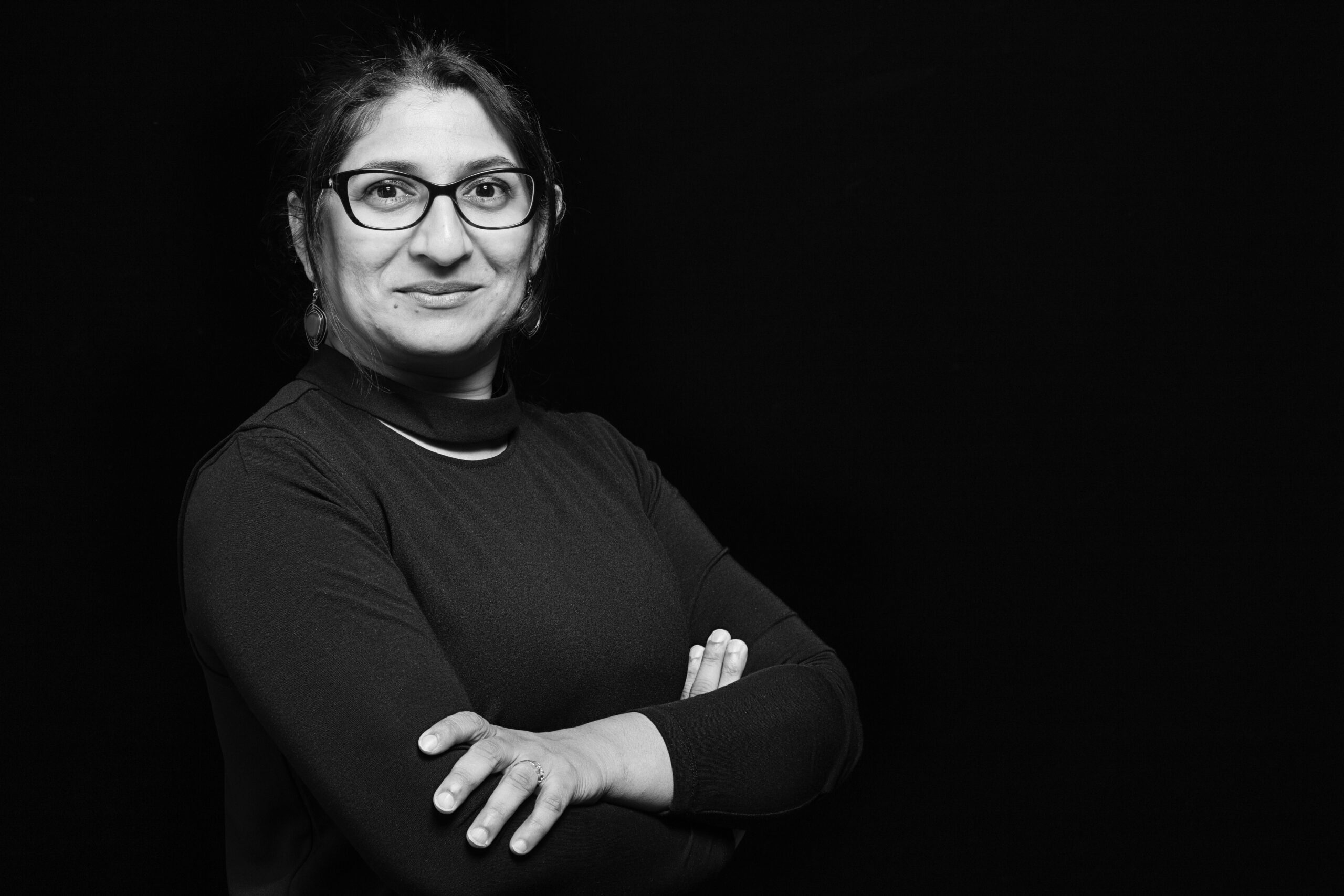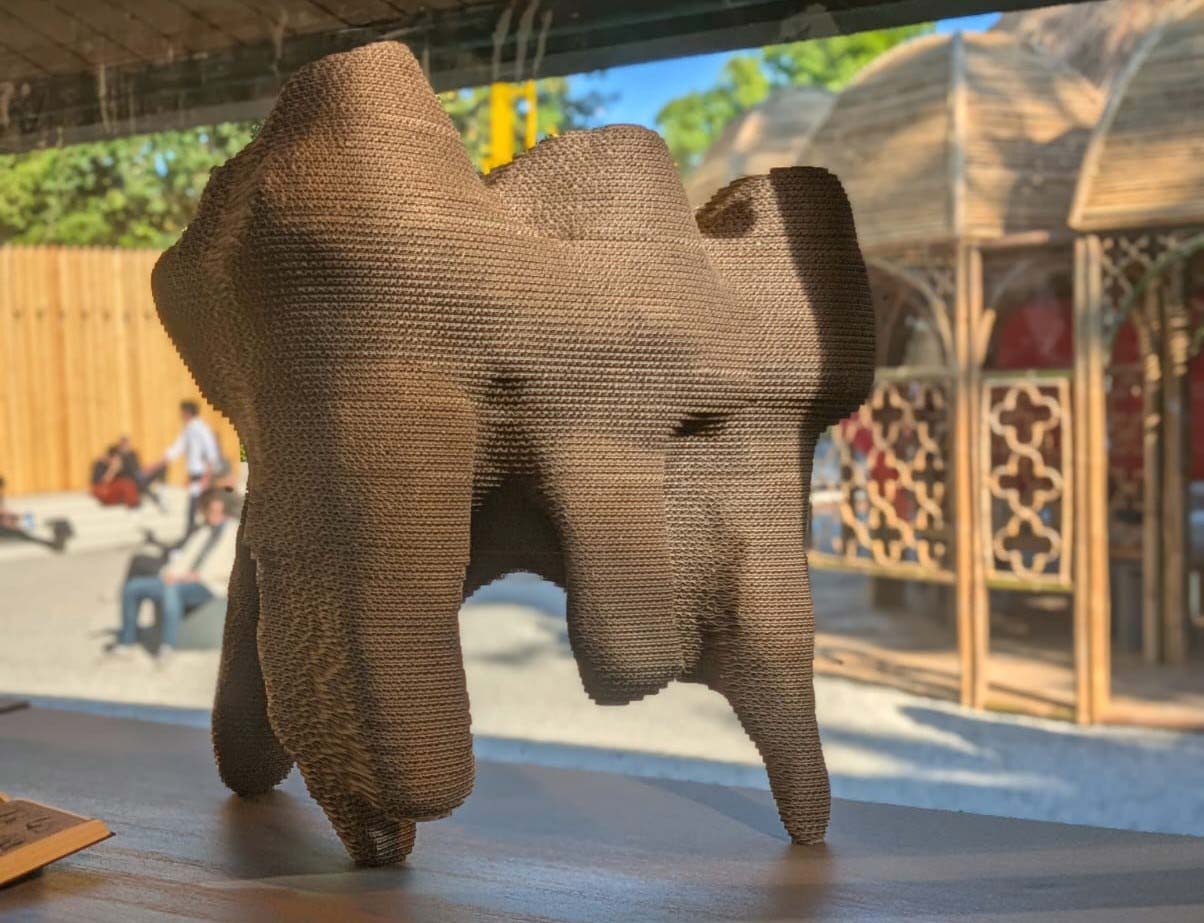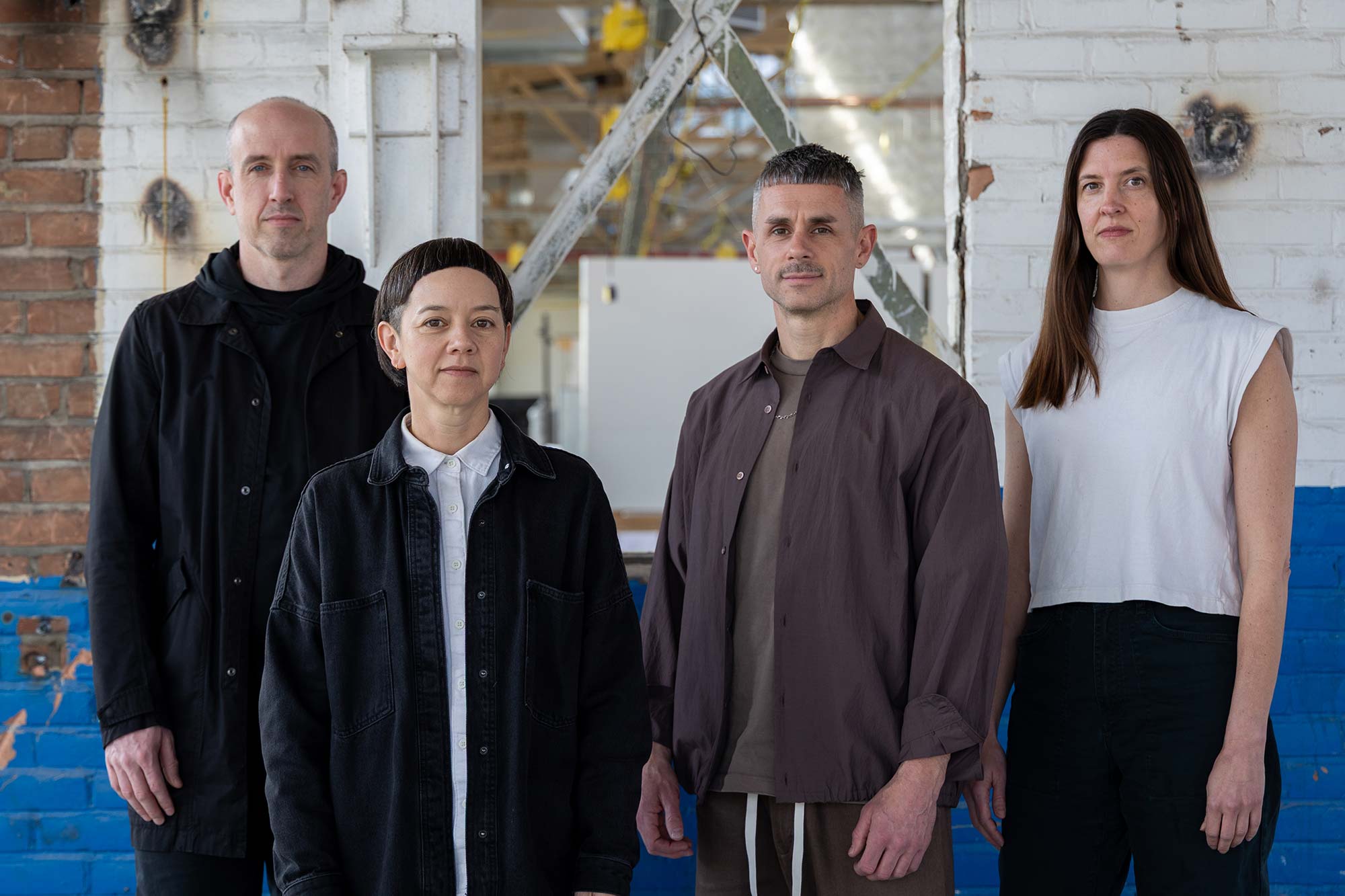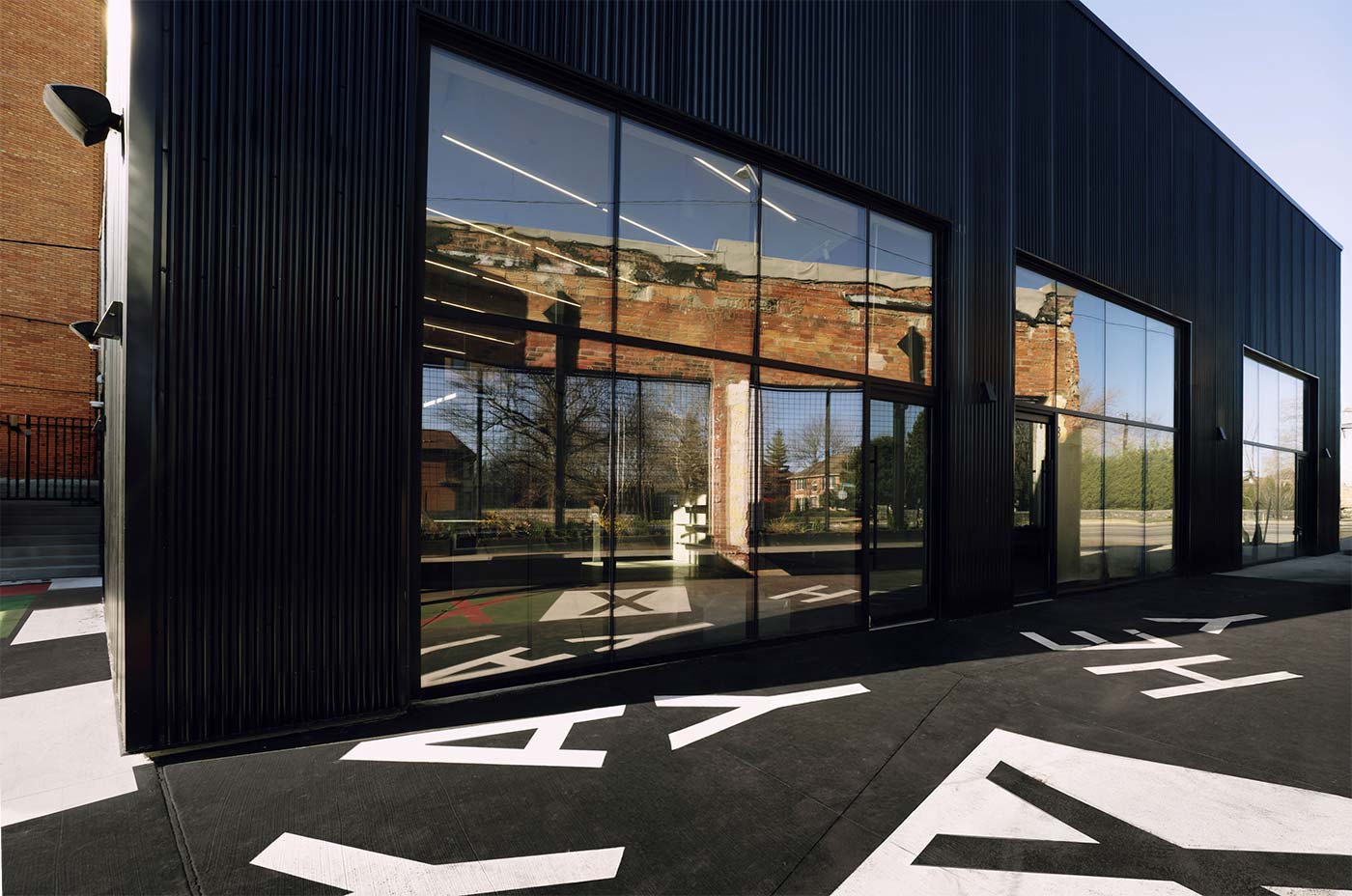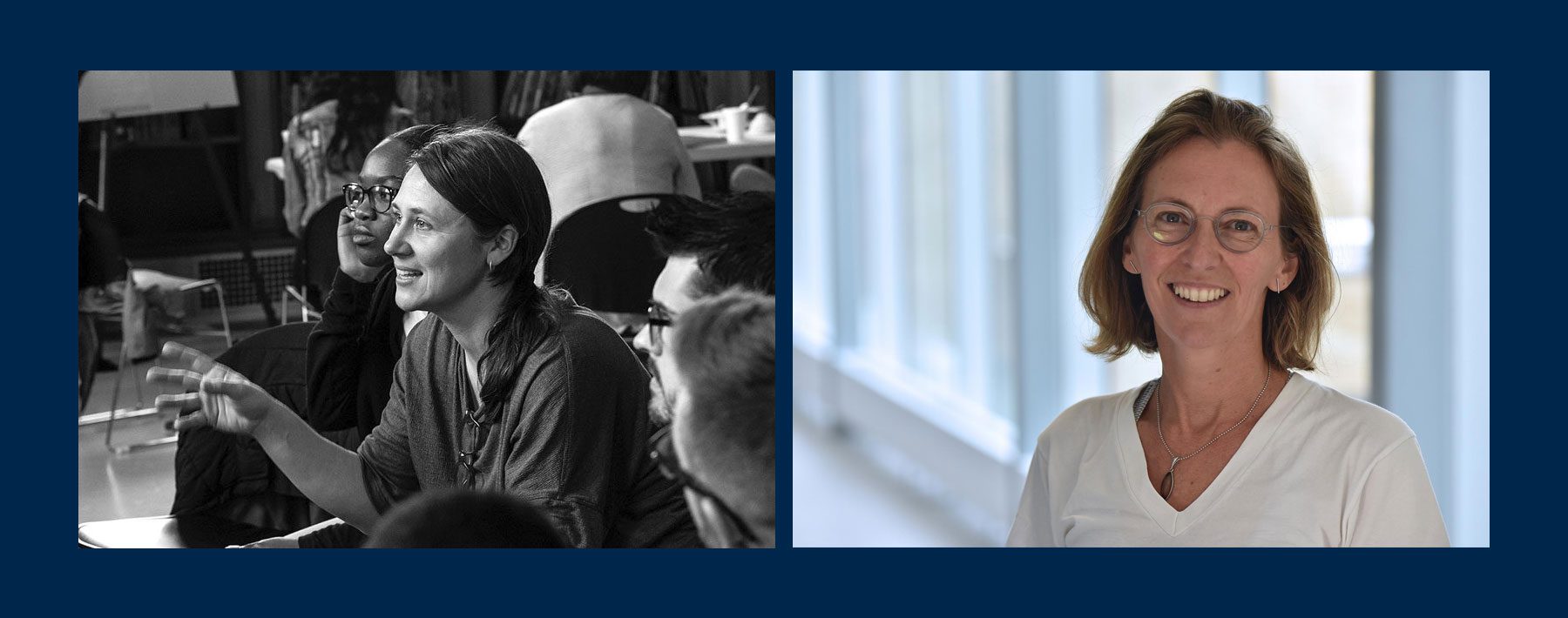
Gina Reichert and Mireille Roddier Named Institute for the Humanities Fellows
Gina Reichert and Mireille Roddier have been named Institute for the Humanities Fellows. The Institute for the Humanities fosters work that engages with the humanities across time and space, strengthens synergies between humanities, arts, and disciplines across the university, and promotes the humanities in the public sphere. In addition to providing fellowships for Michigan faculty, graduate students, and visiting scholars who work on scholarly and artistic projects, the institute offers events, including public lectures, workshops, and discussions.
Roddier, director of B.S. in architecture and associate professor of architecture who also holds a joint appointment with Women’s Studies and a faculty affiliation at the Institute for Research on Women & Gender, was named a 2023-24 Hunting Family Faculty Fellow for her project “Radical Vernacular.” Whether in tangible objects such as fashion, arts, and architecture, or intangible practices such as dialects, craftsmanship, culinary, and performing arts, vernacular forms are an enduring expression of non-dominant cultures that identify and enable domains of belonging. Roddier studies vernaculars beyond the boundaries of architectural studies but as an architect — as an orchestrator of knowledge equally spread between the arts, humanities, and applied sciences.
Understanding vernacular forms through a range of disciplines enables contradictions, paradoxes, and discursive biases to emerge, finetuning our capacity to both make sense of our built environment and to practice with and within it. This research is situated at the intersection of architecture, gender studies, material culture, linguistics, heritage preservation, and environmental sustainability. Each of these disciplines appropriates the notion of vernacular in specific yet divergent ways — as a retrogressive style, as domestic labor, as resistance to mass production, as an environmentally-conscious ways of dwelling, as culture-specific codes and markers of belonging, as indigenous know-how, etc. Taken together, these views foreground everyday life over symbolic accumulation. Roddier’s goal is to address world-makers at large: architects and preservationists, but also everyday dwellers, conscious of their participatory role in the writing of their environment. The stakes are not only ecological, they also engage the material expressions and possible preservation of cultural diversity.
Reichert, lecturer III in architecture, was named a 2023 Summer Fellow for her project titled “Marking Time.” Reichert is an artist, architect, and small-scale community developer. Her practice is rooted in developing strategies and self-initiated projects in her immediate Detroit neighborhood, defining opportunity in overlooked spaces, and using the resources at hand. She has worked for architecture firms and housing organizations in Cincinnati, New Orleans, New York, and Detroit, with M.Arch degrees from Tulane University and Cranbrook Academy of Art. She practiced collaboratively as Design 99 from 2007-17. In 2009, she cofounded Power House Productions, a nonprofit organization facilitating the work of contemporary artists through a network of project houses and public spaces in the diverse Detroit neighborhood where she lives and works.
As a 2023 Summer Fellow, she will be investigating the work of artists and designers that measure and mark time, including the Center for Land Use Interpretation (CLUI) and their ways of cataloging, Smudge Studio’s Friends of the Pleistocene initiative, and Julia Christensen’s collaborative Tree of Life project investigating time and communications strategies between earth and space travel.





